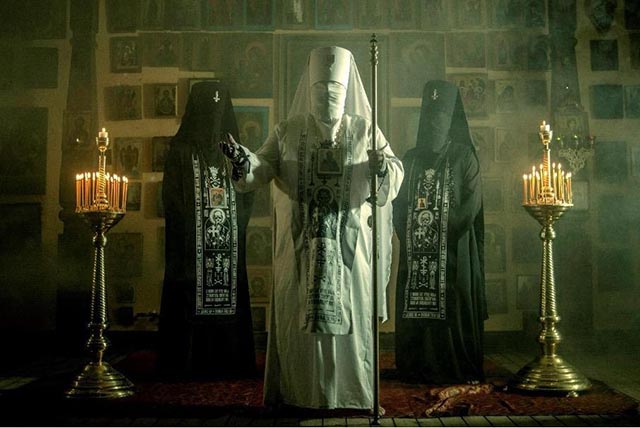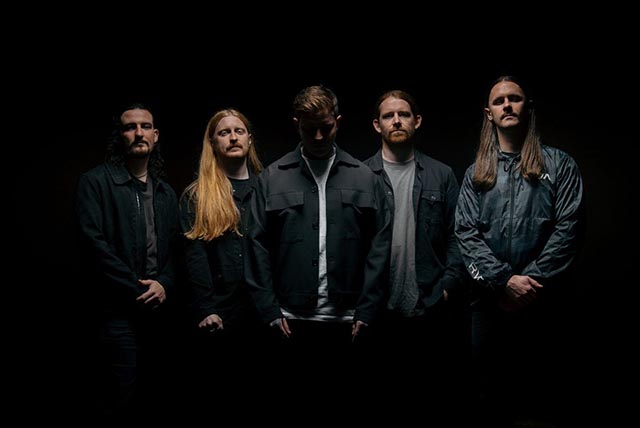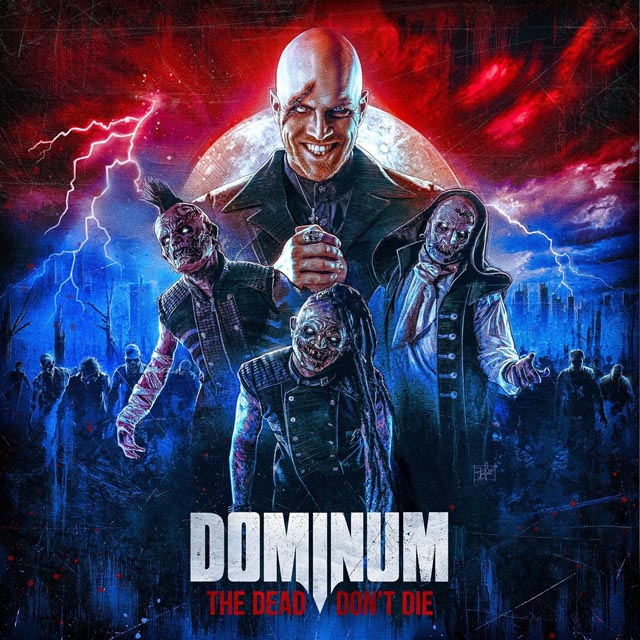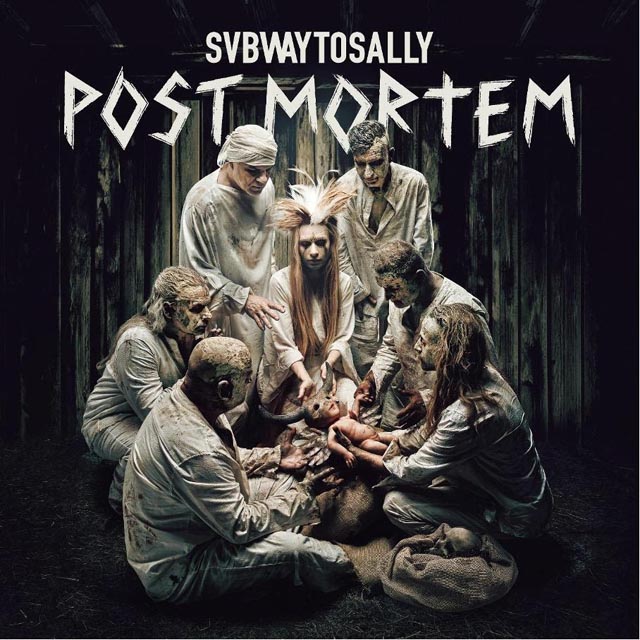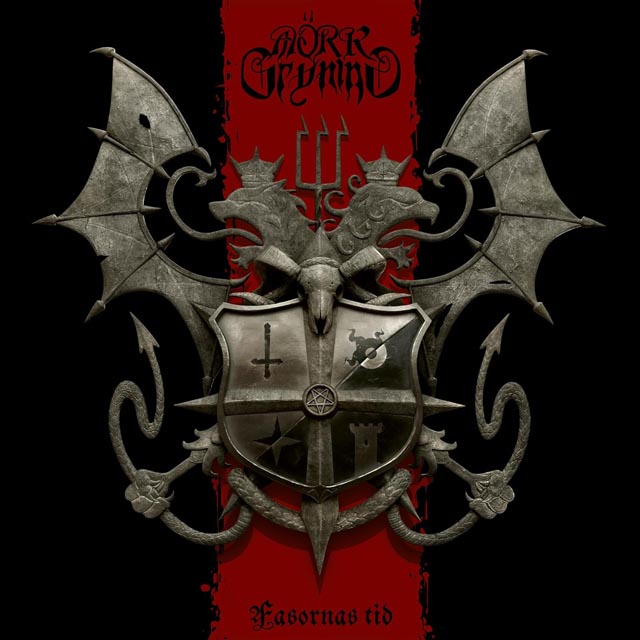 Today, September 27, is a day that most metal fans, if not the entire metal community, have been waiting for all year long: the release of Machine Head’s Unto The Locust. It’s always a challenge for bands to follow up any album, let alone a record as massive and widely acclaimed as 2007’s The Blackening. We’ve already spoken to Machine Head bassist Adam Duce this past Summer about Unto The Locust and the band’s legacy. However, during the Big 4 pre-game party at Idle Hands a few weeks ago, Metal Insider had the chance to speak with Robb Flynn himself. During our conversation, the Machine Head frontman discussed candidly about the making of Unto The Locust and how in regards to song writing, it’s “Better to go too far and then pull back, than never go far enough.”
Today, September 27, is a day that most metal fans, if not the entire metal community, have been waiting for all year long: the release of Machine Head’s Unto The Locust. It’s always a challenge for bands to follow up any album, let alone a record as massive and widely acclaimed as 2007’s The Blackening. We’ve already spoken to Machine Head bassist Adam Duce this past Summer about Unto The Locust and the band’s legacy. However, during the Big 4 pre-game party at Idle Hands a few weeks ago, Metal Insider had the chance to speak with Robb Flynn himself. During our conversation, the Machine Head frontman discussed candidly about the making of Unto The Locust and how in regards to song writing, it’s “Better to go too far and then pull back, than never go far enough.”
It’s been a long time between The Blackening and Unto the Locust. Why did it take you so long to come out with a follow up?
We toured for three years behind The Blackening, and when it was over it was like, “alright let’s take a break for a minute here.” After about two months, me and my drummer [Dave McClain] were climbing the walls. We were ready. I was like, “I’m done with the break.” We had started writing The Blackening in August of ’05, and wrapped it up in September of ’06. By the time we’d wrapped up touring — it was April of 2010. So it’d been a good four years since we had had a writing session. And I had already had riffs, and I was already — and I was just ready.
On first listen, it’s a way ambitious record, and you’re doing things that I’ve never heard on a Machine Head album before. Was it a conscious effort to stretch and do more than you’ve done before?
I would love to say I had this grand vision, but if you sat in the Machine Head jam room, it’s just so Beavis and Butt-Head. It’s like, ‘what do you think of this riff?’ “Oh, that’s cool.” ‘What do you think of this riff?’ We just try stuff, and sometimes I get these crazy ideas. I just try and write it out, and the dudes just let me go with it thankfully.
It seems like there are more harmonies than there’s been before.
Yeah, and there’s a lot of — a lot of musicality. The neo-classical influence coming in really opened up a lot of doors that we could have. You know, where as opposed to your having just evil notes, and I’m not — that’s how schooled I am. I call it evil notes, or sad notes, or happy notes, or you know, like ‘go to the 3rd fret, go to the 2nd fret.’ I don’t know any theory, I just hear it in my head. But, to me, having those – as opposed to evil notes, a little more of the sad minor notes – In the classical context, it really opened up melodies, and then you could build things on top of it. And the more that we went, the more ambitious we were – like “fuck it. Let’s just fucking pile it on, and see what happens.” Better to go too far and then pull back, than never go far enough.
It seems like on The Blackening, your songs started getting longer and more epic. Were you trying to do that? Kind of as a reaction to maybe the Supercharger era, where you were kind of writing, it seemed, more radio single-y type stuff?
We’ve always had long songs. I mean, Burn My Eyes – “A Thousand Lies” was 7 minutes, “A Nation on Fire” was 7 minutes, “Death Church” was six minutes. You know, Supercharge — “Trephination” was seven minutes. With that record, the first four songs that we wrote, there was no indication that the songs were going to be long. The first four songs that we wrote were the shortest songs on the record – “Beautiful Mourning,” “Slanderous,” “Aesthetics of Hate,” “Now I Lay Thee Down.” The first four months of the recording it was just where we were going. And then, at some point, “Clenching” came along. We’ve never written for the radio. We’ve never timed our songs, and gone, “is this gonna work?” We just write until we feel it’s done. And when we timed “Clenching,” we were all fucking shocked. Like, “this fucking song is 10 minutes fucking long, and it’s killer!” It doesn’t feel like it’s 10 minutes long. You know what I mean?
I don’t think any of your songs do really.
And that’s great. I mean, that’s a huge compliment to hear. I mean, some bands write a 4-minute song, and it feels like a 10-minute song, you know? I’ve always wanted to write a song in the classic sense and structure of a pop song.
Like verse, chorus, verse?
Verse, chorus, verse. Yeah, I want hooks. I want things that repeat. I don’t want to write riff soup. I’ve never wanted to do that. Even my favorite bands — you know, Mercyful Fate, Metallica — there was still a song in there. Maybe in between that, they took all these turns and twists, but eventually it came back to the song. And I still feel that’s very important. Sometimes they’re shorter, sometimes they’re longer. You can plan all you want to, but at the end of the day, more often than not, the music will only go one way. You have to let the music take you where it’s going.
Did you storyboard on any of the songs, like sketch them out?
I just keep on putting it together until it happens and I’m like, “okay, it feels done.” We all just sit there and go “yeah, that feels done.” We just jam it back and forth and go, “okay try this, try that, eh that sucks, try this, oh that’s cool,” you know? Like I said, it’s very Beavis and Butt-Head.
What do you think of the thrash revival that’s been going on for the past few years?
It seems like it’s kind of fizzling out now. But it was cool man. I thought it was really cool. I mean, to see young kids you know, rocking stretched jeans and high-tops, and the vests – being 16 years old with the flipped up hat. I was like, wow, that was me you know. I saw this connection. And yeah, I definitely romanticized it.
Did you like some of the bands that came out of it?
I thought Municipal Waste was good. I thought Bonded By Blood was really good. The two bands that seem to have transcended that a little bit seem to be Lazarus A.D. and Evile. You know, they’ve managed to get out of there and continue on. I’d like to see it go in more of an original direction. I thinkAmericareally has a fondness for the past. There’s always been a retro thing inAmerica, and while I think there’s charm to it – I mean, one of my favorite guitar players of all time is Jimi Hendrix. And I never got to see Hendrix, but there was a guy who came along about 20 years later, and he was like, a Jimi Hendrix guy. He wore the headband, and played the songs, and he did his own trip and it was cool, but I don’t know. I’d rather find new things and live in the present. Like, I’m definitely a guy that lives in the present.
What are your thoughts on Spotify and the rise of digital music as a new form of music.
I don’t know. I mean, I know my drummer’s got Spotify on his iPhone and he fucking loves it.
It’s pretty great.
I don’t have it. I probably haven’t bought a CD in like three years. I get everything from iTunes. It goes right onto my phone. I can plug it right into my car. So there’s definitely a convenience factor. And that’s what’s exciting. It’s an exciting time. Like, there’s this huge change happening and we’re living in this change. And, who knows where it’s gonna go? I’ve been making music for 25 years now, and I’m not really qualified to do anything else. I’ve had odd jobs here and there, but this is what I do. This is what I’m going to do. And, wherever it goes, I’m just along for the ride. I’m gonna keep on putting on music, and I think people — as long as they support bands and as long as they support artists, it’ll always be there, in whatever form.
[picture via]


